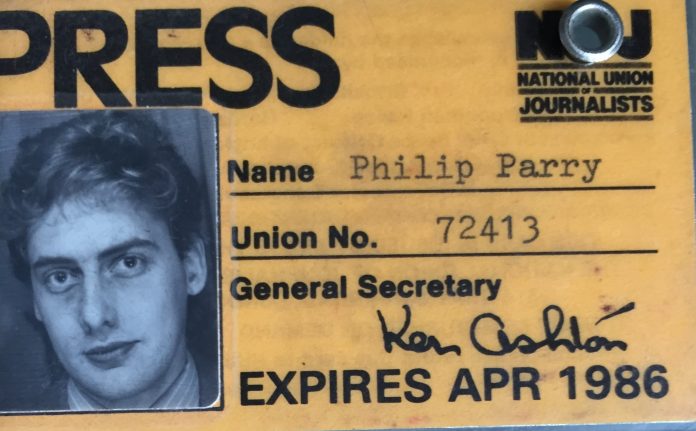- ‘Lies, damned lies etc…’ - 13th February 2026
- Missing in action - 12th February 2026
- Travel news again - 11th February 2026

On The Eye our Editor Phil Parry has described how he was helped to break into the South Wales Echo office car when he was a cub reporter, recalled his early career as a journalist, the importance of experience in the job, and making clear that the ‘calls’ to emergency services and court cases are central to any media operation.
He has also explored how poorly paid most journalism is when trainee reporters had to live in squalid flats, the vital role of expenses, and about one of his most important stories on the now-scrapped 53 year-old BBC Wales TV Current Affairs series, Week In Week Out (WIWO), which won an award even after it was axed, long after his career really took off.

Phil has explained too how crucial it is actually to speak to people, the virtue of speed as well as accuracy, why knowledge of ‘history’ is vital, how certain material was removed from TV Current Affairs programmes when secret cameras had to be used, and some of those he has interviewed.
Here he shows how important investigative journalism is today.
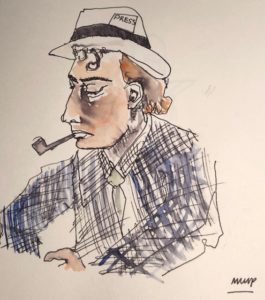
Investigative journalism is needed now more than ever.
It has just come to light in one newspaper that a spying scandal engulfing the huge financial firm Credit Suisse (CS) has worsened after the bank admitted that a second senior employee had been followed by private detectives.
This was only uncovered by a diligent journalist who was investigating the extraordinary events at CS. Officials at the bank uncovered the surveillance of the second employee after Neue Zürcher Zeitung (a Swiss newspaper) reported that he had been followed. A review by the bank and a Swiss law firm, has found that Peter Goerke, who was then the bank’s head of human resources, had been tailed “for a period of several days”.

Reporters at the same newspaper have also disclosed that a high-level executive at CS had ordered this surveillance and instructed at the same time that the bank’s former wealth management head be secretly monitored too. The executive was forced to resign in October after an internal investigation found that he and others “did not respond truthfully”.
On The Eye too we have uncovered huge scandals in Wales after anonymous information was fed to us, or our undercover journalists found out the truth of what was happening in controversial organisations.
We exclusively revealed details from a whistleblower who had worked at Brecon War Memorial Hospital of how an elderly stroke victim was allegedly slapped in bed by a carer, and visiting families were forced to bring in food to keep their starving relatives alive. We have also been told that falsification of notes at the hospital was “routine practice”.


The whistleblower said: “The night culture at Brecon hospital (was) amateur at best, dangerous at worst. (Staff were) drunk on duty, nurses (were) put to bed as they were drunk, then woken up before days-staff turned up. A convicted sex-offender was working as a care assistant.”
A police investigation followed which lasted several months. The worrying news of what we were told may have been happening at the Brecon hospital revealed by The Eye, came soon after another scandal was disclosed by whistleblowers in the National Health Service (NHS) in Wales.
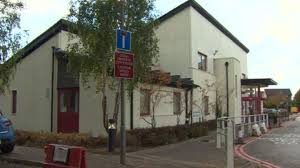
The First Minister of Wales (FMW), Mark Drakeford, was at the helm as Welsh health minister when a huge scandal erupted at a North Wales hospital about the treatment of mentally ill patients, emerged which hit the UK media. The alarming practices at Ysbyty Clwyd’s Tawel Fan were also prompted by a whistleblower, and it was closed in December 2013 after shocking revelations were made by The Daiy Mail. Patients were ‘treated like animals’ as they were filmed crawling across floors, and a report into the scandal in 2015 said there was “institutional abuse”.
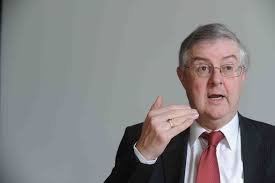
Mr Drakeford, who went on to become the Welsh Government Cabinet Secretary for Finance and Local Government before he became FMW, apologised and said there would be an “urgent meeting”.
Meanwhile our undercover reporting on The Eye provided extraordinary evidence of the astonishing turmoil inside a leading Welsh university and gave us details people were “too frightened to talk” publicly about.
The remarkable details included information about the alleged chaos, and how leading officials who had oversight of the institution were “turning a blind eye even though a grievance has gone straight to them”.
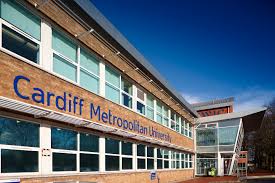
We were told how a senior member of staff had left Cardiff Metropolitan University (CMU), but it had caused deep dismay among staff as “she is the only member of the senior team who is on the side of the academics”.
The Eye have received numerous complaints from whistleblowers that those who are left at CMU are of low calibre and subservient to the controversial Vice-Chancellor (VC) Cara Aitchison.
One of our sources within CMU told us those that have been “brought in … worked with VC previously”, and the contact added: “I can’t wait for the REF (Research Excellence Framework) results … Research across the university is at an all time low”.
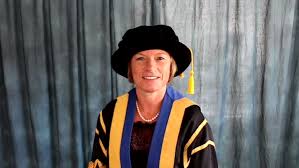
We were also told by a whistleblower that a deputy Vice-Chancellor at the university had submitted a formal complaint about the running of the institution by Professor Aitchison. The Eye have shown how another whistleblower at CMU told us that the atmosphere was “feverish”, while more than two and a half times the amount of money had been spent on legal fees compared with the year before. But the whistleblowers at CMU have also said there is real anger among staff that the crisis is not being covered by the mainstream media.
Investigative journalism also came to the fore on The Eye when we disclosed that another university in Wales – Swansea – had employed a crook.
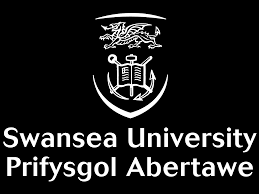
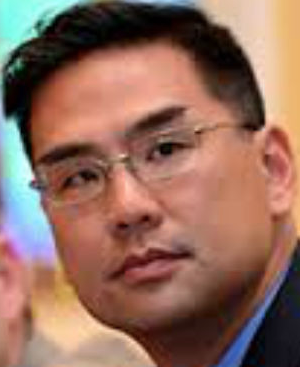
Steve Chan was involved in a huge fraud before he came to the university’s management school, and was investigated by the FBI leading up to his conviction, when he was jailed by a Boston court for four years three months, but continued onwards to seeming great success.
In 1997 and 1998 Chan and others made false representation to lenders about two companies he was involved in, and more than $20 million was then promised to fund the lease or purchase of computers, furniture as well as related equipment.
Apart from serving a jail term, the former worker at Swansea University (SU), faced other punishment. Chan was ordered to pay millions of dollars in compensation, by the court in Boston, and his sentence was followed by three years of supervised release after he admitted one count of conspiracy to commit fraud and one count of mail fraud. He was also ordered to pay restitution of $12,596,298. But the university was apparently unwilling to answer our questions in a Freedom of Information Act (FOIA) request about Chan and dubbed us “vexatious”.

Four of the questions we asked in the FOIA were:
- What was the exact date that Professor Steve Chan of the School of Management registered for his Ph.D at Swansea University?
- What was the exact date that he undertook his viva voce examination for his Ph.D?
- Who were the members of his Ph.D viva committee (including external examiners)?
- Who approved the appointment of the supervisors for his Ph.D?
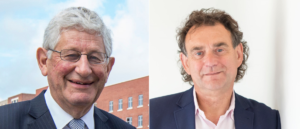
Our journalism has also been central to the remarkable news which prompted the suspension of the man who oversaw the appointment of him at Swansea University School of Management, Marc Clement.
He and his superior, the then Vice-Chancellor (VC) of Swansea University, Richard Davies, were both suspended then summarily dismissed from their roles along with others for “gross misconduct”, while a top-level investigation was conducted.

These shock disciplinary actions were prompted by the connections with the Wellness and Life Science Village in Carmarthenshire, contentious details of which were disclosed by us. This project had emerged from the £1.3bn City Deal – which also included planned match-funding – for the Swansea Bay City region, which is made up of the four local authorities of Swansea, Neath Port Talbot, Carmarthenshire and Pembrokeshire, but the background to it has become highly controversial.
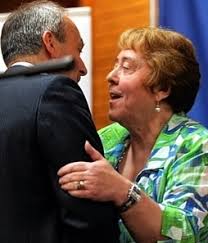
SU had combined with Sterling Health Security Holdings to raise a huge amount of money for the project. Sterling Health is registered in London, and its directors included Franz Hermann Dickmann, as well as the former leader of Carmarthenshire County Council Meryl Gravell. During our inquiries, one of the anonymous whistleblowers at SU told us: “The suspensions have everything to do with the Wellness Village in Llanelli”.
It has also emerged that the man who chairs the governing body at SU, Sir Roger Jones, has resigned from his senior role with a company where Professor Clement was also a director, although we are told by a spokeswoman the event is “wholly unconnected” with the top-level probe which is underway.
So investigative journalism is important – but CS may not see it that way!
 Truth hurts part two is next week where we reveal further disclosures by us because of The Eye’s investigative journalism.
Truth hurts part two is next week where we reveal further disclosures by us because of The Eye’s investigative journalism.
Tomorrow – we give the winners of our celebrated picture competition at the state opening of Parliament, in the photograph of Boris Johnson grinning after his enormous General Election victory, while Labour leader Jeremy Corbyn looks ‘stony-faced’.
Phil’s memories of his astonishing lengthy award-winning career in journalism as he was gripped by the incurable disabling condition Hereditary Spastic Paraplegia (HSP), have been released in a major new book ‘A GOOD STORY’. Order the book now!








